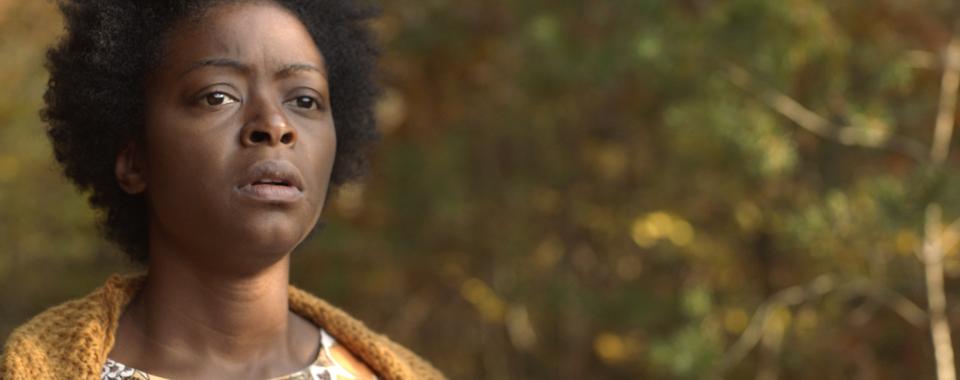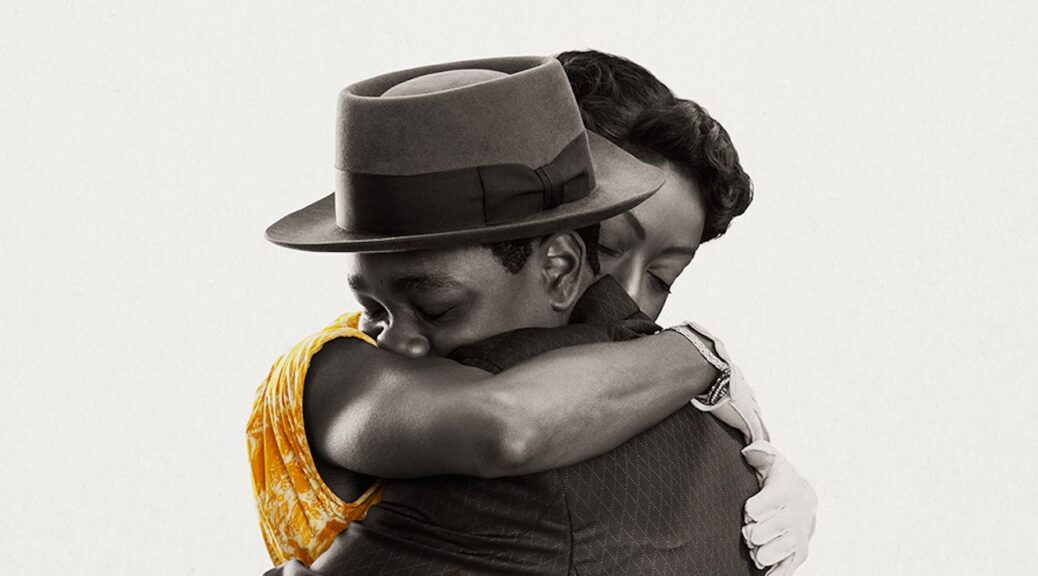40 Acres
by Hope Madden
At one time, a lot of people were promised 40 acres and a mule. It was a lie. But Hailey Freeman’s ancestor had freed himself, left his family behind, and walked to Canada to make his own promises. Generations later, Hailey (Danielle Deadwyler, a force of nature) will be damned if the apocalypse, wandering cannibals, or a teenage boy’s hormonal behavior is going to jeopardize that farm.
Co-writer/director R.T. Thorne’s post-apocalyptic horror/thriller feature debut 40 Acres benefits early and often from inspired framing, gorgeous shot making, and one remarkable performance. Indeed, Deadwyler is so good that sometimes the cast around her can’t keep up.
She’s the matriarch of the Freeman farm and she’s a hard woman. She has to be, but the land is providing for the family, and the family is protecting it from those outside the electric fence and barbed wire who might want to come inside.
The bigger problem might be Hailey’s oldest, Manny (Kataem O’Connor), whose restlessness and desires put the family at risk.
Thorne uses flashbacks sparingly, which gives them some weight. Wisely, these serve less to explain the apocalypse than to hint at relationships and character, because, naturally, the real story here is not the flesh eaters moving from farm to farm, but the strains of coming of age within this pressure cooker.
Many films—horror movies, in particular—rely on terrible decision making to move the plot forward. 40 Acres weakens as it moves from Act 2 to Act 3 with wildly bad character choices. But something has to trip this family up so Thorne can show off remarkable instincts for action cinematography, as well as his lead’s range.
Yes, we know Danielle Deadwyler—snubbed by Oscar for her searing performances in The Piano Lesson (2024) and Till (2022)—is a magnificent actor. One of the best working today. But you might not realize (unless you’ve seen her fantastic 2019 thriller Devi to Pay) that she’s also quite at home in genre films. The degree to which she brings authenticity to her role as an Army veteran annihilating redneck cannibals with machetes is breathtaking.
Michael Greyeyes (Wild Indian, Blood Quantum) delivers needed warmth and humor, and he and Deadwyler share a touching chemistry. A full slate of nasty marauders impresses, especially veteran genre actor Patrick Garrow.
The writing periodically drags 40 Acres backwards, particularly the budding romance and related choices. But for thrills-aplenty action with something on its mind, you could do worse than this.







